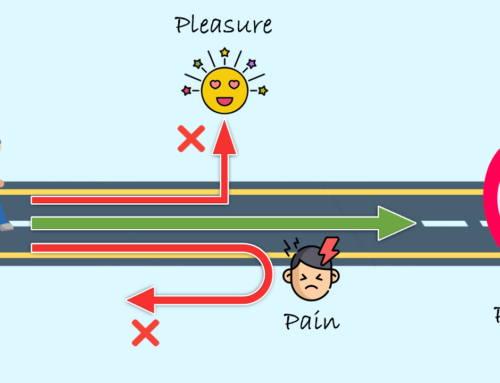How can we redefine our relationship with failure – Suppose a bully has been terrorizing us for a long time. Suppose further that they are always going to be a part of our life. Then, if we are to ever stop being cowered, we need to change our relationship with them.
For some of us, failure can be such a bully. Whenever it enters into our life, we feel not just defeated, but devastated; we feel as if it is the end of the world. It takes us a long time to rise; sometimes, in some areas, we never rise. On failing, it’s natural to feel disappointed, disheartened or distressed. But the magnitude and duration of those feelings determine whether we are resilient or fragile. If we are to ever rise from fragility to resilience, we need to redefine our relationship with failure.
How can we go about such redefinition? By expanding our self-understanding. The Bhagavad-gita explains that we are spiritual beings (02.13), whose core is unaffected by all worldly dangers (02.23), including failure.
How does this self-understanding reshape our vision of failure? First, on understanding that we are indestructible, we appreciate that we have gone through many failures over our many lifetimes of existence. Failure isn’t the end of the road for us; it’s just a falling back in one lap of the marathon that is life. We pass through it with equanimity (05.20). Second, we see failure as a phase in our evolution; it’s an opportunity for learning and growing.
See failure positively — isn’t this a standard self-help teaching? Yes, but spiritual self-understanding gives us the secure foundation for applying this teaching.
One-sentence summary:
To face failure more resiliently, use spiritual self-understanding to redefine your relationship with failure.
Think it over:
- What is your current relationship with failure? How does its arrival in your life affect you?
- How does Gita wisdom help us change our vision of failure?
- Consider any past failure that rankles you even now. How can you use Gita wisdom to change your relationship with that failure?
***
05.20: A person who neither rejoices upon achieving something pleasant nor laments upon obtaining something unpleasant, who is self-intelligent, who is unbewildered, and who knows the science of God is already situated in transcendence.



Failure and success are material feelings.
With devotion and discipline, we should endeavour to shift our inner-selves from a restless state of ‘having’ to a tranquil, quiescent state of ‘being’.
Thanks for the thoughtful comment.